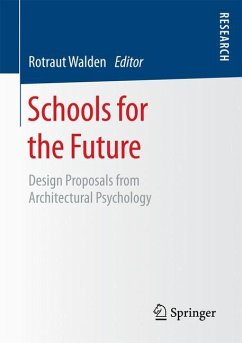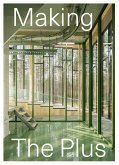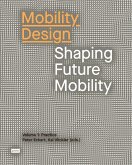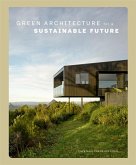Drawing on the perspectives of architectural psychology, set against the historical development of school building in the United States, Japan and Germany, the authors' vision is to create places where we would want to relive our own school days. The book takes the position that user design, control of stress factors and control of communication (privacy, retreats) should be allowed to modify the original architectural design to flexibly accommodate future changing requirements. The development and application of criteria for assessing functional, aesthetic, social-physical, ecological, organizational and economical aspects to various parts of the school complex call for a common language for the design process. The appendix presents 24 innovative schools from countries in five continents.
Bitte wählen Sie Ihr Anliegen aus.
Rechnungen
Retourenschein anfordern
Bestellstatus
Storno








